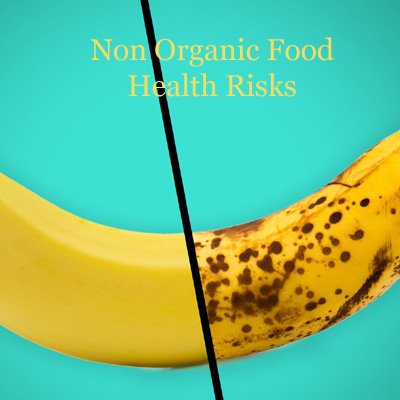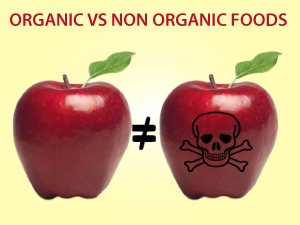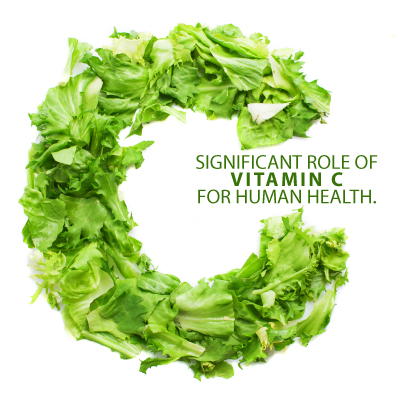Now it is one of the most talked topics that what we are eating to take nutrition for our human body. Recent news and research have shown that most of the people are suffering from different complicated health problems due to harmful foods like non organic foods. According to World Health Organization, about 30,00,000 people around the world are suffering from pesticides from non-organic foods and 2,20,000 people die due to consumption of no-organic foods. So it is really so important to know about non organic food health risks.
In modern science, food cultivation has gone up due to different ways to feed up growing numbers of people. In old days, there was no modern science to increase food production. Farmers solely depended on nature to grow foods. Recently, we can see some modern form of foods that grow with the help of lots of chemical fertilizers, pesticides, and insecticides to kill insect. Even, foods may be grown by immature way but look like mature where dishonest farmers adopt unhealthy means to increase food production which in turn cause non organic food health risks.
Eating non organic foods has lots of health complication like accumulation toxins and harmful chemicals in the human body which in turn lead to many more complicated diseases. You need to be so careful what you are eating in the name of fresh foods. First we will discuss how foods may be non-organic and you should also know why non organic food bad.


Difference Between Organic vs Non Organic Foods
People have still misconception between organic foods and inorganic food. It is really important thing about what you are eating for health. Organic foods are more nutritious than non-organic foods and organic foods are grown with the help of nature. Non-organic foods are produced with the help of chemical, pesticides and herbicides which are harmful for human health and non organic food health risks are many more. When chemicals are used in the foods, then residues contain in the foods in spite of finishing cooking and it gets linked with different organs and disrupts the normal function of the health. Even non-organic foods are processed foods, foods added with additives or preservatives to last foods for long time.
Harmful Effect of Non Organic Food for Health
Pesticides
Farmers obviously will want more crops according to their investment in the field. But most of the cases, it may not be possible to achieve expected food production due to penetration of insects in the foods. Insects stop the growth of the foods as well as eat up the actual size of foods. To protect insects, farmers may use chemical in their fields to kill insects. The important thing to remember that a little amount of pesticides may contain in the foods which stores toxins in the human body when those foods are taken without cleaning proper way.
There is still traditional way that can be found to kill insects where foods are grown in organic way. It is your work to make sure organic foods for you and your family members to lead a longer and better life.
Food Additives
Organic foods will define your good health whereas most of the people suffer from different kinds of disease instead of consuming different nutritional foods. They may think that there is no problem in the foods but this condition may be due to environment. However, Different company stores foods commercially to sustain foods for long time through food packaging. The regulations of organic foods strongly prohibit the use of additives or processing foods with many more harmful chemical or fortifying agents with preservatives, sweete3rns enhancers and coloring or adding flavor to foods and monosodium glutamate.
These harmful chemicals or additives do have very horrible effects on our health as they dismantle the smooth functions of every organs of human health and non organic food health risks are so significant.
Processed foods
Processed foods are getting much popularity in the developed countries as taking processed foods take less time and more works can be done. But there is also risk factors when you are going to be fully dependent on processed foods. When you are about to set out for office or your kids are in the school are very much fond of processed foods as they can save much time by taking those foods. Processed foods are produced from different stages where nutrition level is less and the ingredients of processed foods are not healthy.
Higher amount of salt, sugar, sodium, oil and spice are added with foods which makes foods separate from its roots. Foods lose nutrition and those high amount of salt, sugar and sodium are not healthy for human health. According to recent study and research these foods are solely responsible for heart disease, diabetes, hypertension and health professionals always are representing that information. So these highly non-organic foods should be avoided better living.
Environment factors
Arsenic is one of the big concern around the world as non organic foods. It is a chemical properties and arsenic is highly found in many minerals. Arsenic is formed of sulfur and metal which works as poison in the human body. The horrible disease that cause due to arsenic is cancer. In the USA, there are some states where arsenic contamination is highly found and these states are Michigan, Wisconsin, Minnesota and the Dakotas. Foods grow with its environment impact and these foods grown with environment have harmful effect on our health.
However, Arsenic is one of the environmental sources and arsenic containing water is very dangerous for human health. Lots of people in different places of the world are suffering from arsenic related health complication. So every people should be aware of drinking pure water to save life from the clutch of cancer.
Genetically modified foods
Modern science is evolving and agriculture is getting tremendous progress in the area of food production. The idea of modern science is being used in the agriculture to produce foods rapidly because it is also so important to grow foods extensively for feeding growing numbers of people. People are increasing but the cultivable lands are same and it’s not increasing. Non-organic foods as vegetables are genetically modified. Foods genetically modified have long term harmful effects on human health.
So when you are in the market, you may see lots of new and abnormal size of foods. You need to know the organic facts of those foods before buying them.
Non-organic soy beans
Soy beans are healthy foods for human health but they have adverse effects on health when they are genetically modified. Different research especially on genetically modified foods have shown on animal studies that is genital abnormalities and high rate of mortality.
Non-Organic Cucumber and salad
Pathogenic bacteria is one of the main reason for foodborne ailments and when these genetically modified foods are taken can be contaminated by salmonella. So to avoid pathogen contamination is really difficult to avoid as you need to be careful when you are eating those foods.
Canned vegetables
You are busy guys and don’t have enough time to prepare your vegetables foods at your home. To save time, you may opt for canned vegetables. But these canned vegetables have been produced through different stages which have fewer health benefits. They are not good for your health so you need to avoid them.
Non-organic foods have lots of harmful effect on health because they change in every organ in the way that harmful substances containing in non-organic foods cause to cancer, diabetes, fetal failure, brain damage, hypertension and obesity.
Brain damage
Brain is one of the most important factor for human through which we can think, judge and perform our daily activities. When brain does not work properly, we are less productive to our work. Brain may be damaged due to non organic food consumption. Pesticides containing any foods have shown that there is much organophosphate which is considered a harmful chemical and it plays effective role in the change f neurotransmitter receptor in our brain and we cannot feel good as brain loses its power to perform well. There is another adverse property which is chlorpyrifos also hardens the DNA level in the brain which causes deficiency in cell function.
Most of the cases, our memory can’t work in better way. We cannot recall what has happened even if after 5 minutes. Pesticides and chemicals slow down the function of cognitive function which means mental strength, effective judgment, and critical thinking and makes memory so feeble. This problem is highly found among children. Children can’t perform well in the class and presentation becomes very difficult when non-organic foods especially grown with pesticides and chemicals. However, when you are in the market, it is so important to identify food certification for organic foods.
Fetal Failure
During pregnancy, it is so important to take foods that has health benefits. In this stage, every woman to be pregnant are more aware to take organic foods. They need to know non-organic foods also in this stage. If they take non-organic foods without any awareness, they may face horrible problem like fetal failure. Fetal growth is the significant stage to grow a baby as pesticides exposure adversely cause to problem to fetal growth.
Cancer
Cancer is one of the leading causes of death in the world and millions of people are dying for cancer complication. Study has found that there is clear link between cancer and consumption of non-organic foods. Non organic foods contain different kinds of chemicals and pesticides which stay in the body and disrupt the normal function of the cells. These pesticides are associated with higher risk of facing cancer which cause higher possibility of facing cancer. So living a life of free from cancer disease, there is no way by consume foods that clarify organic facts. When you are selecting foods in your list, it is so important to the farming process of foods in the farmer’s market and also know non organic food health risks.
Recommended Post:
https://www.foodbehind.com/foods-fight-lung-cancer/
Sluggishness
All of us may lose our stamina in everyday work in spite of taking proper fruits and vegetables. We ask ourselves that we are taking right foods but why we are so sluggish and don’t get stamina. Yes, there is critical factor behind being sluggish when we are eating non-organic foods in our everyday meals. Pesticides and chemicals can last in our body and they slow down every function to work strongly and we feel so lazy and sleepy. Even non-organic foods are providing less nutrition in your body whereas we need needed amount of nutrition to get every function smoothly by supplying energy with the help of effective nutrition from foods.
Slowing the central nervous system
Depression is one of the significant problem for young age people and most of the young people suffer from this health complication. Young are not very serious to take which kinds of foods are helpful for health. But they need to be careful of this fact also. When they consume non-organic foods massively, they may face this kind of health problem. Foods contaminated with chemicals and insecticides do have adverse effect on central nervous system because they disrupt the normal function of central nervous system highly. So for a life of depression free, organic foods also play a significant role indeed and non organic food health risks can be traced one of the big reason for human life.
There is a very trusted saying that you are what you eat. Proper foods will define your health and improper foods will disrupt your health. We are eating foods consciously and subconsciously to meet up the needs of our health. In this modern world, we can see some exciting change of foods in the market and it is like same foods that we have never seen before. These foods take less time to be grown and nutrition components are found at small amount. But it is time to be very aware to identify which are organic foods and which are non-organic foods. Organic foods will provide you better health in your life and longer life whereas non-organic foods will take away your happiness in life. So it is also time to know some non organic health risks.






